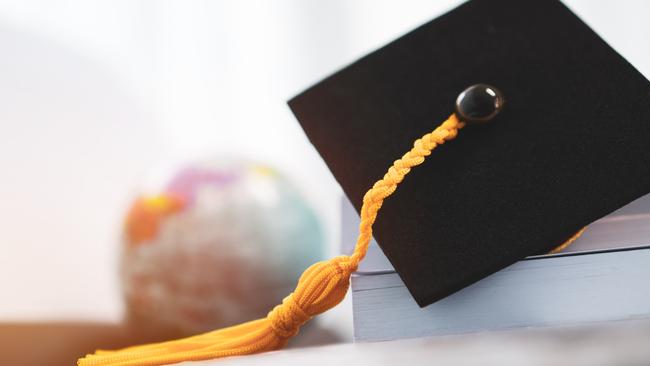
A tax, or levy, looks very likely to be a recommendation of the final report of the government’s Universities Accord review due to be released in February, which would lead to it being enacted in next year’s federal budget.
There have been a series of nods, winks, things that those in the know have said, and things they have refused to say, which leads to the conclusion that such a tax is on its way.
And don’t overlook the convenience factor.
Viewed from a strictly electoral point of view, a tax on international students sits at the level of political nirvana. It’s like a cake that gets bigger the more you eat of it.
It would indeed be the government’s magic pudding, pulling in revenue with absolutely no political backlash.
In fact, at this time of rising house prices and high rents and growing fear about high migration levels, taxing international students is a political positive for the Albanese government. It helps fend off opposition attacks on high levels of temporary migration, of which students are a major source, which Liberal leader Peter Dutton is trying to turn into an issue to win the 2025 election.
I was first to report that the international student tax was being considered by the Universities Accord panel before it released its interim report in July. The report recommended it be considered. Then the tax recently won a notable endorsement from Australian National University economist Bruce Chapman, who is the architect of Australia’s much admired HECS student loan system.
Chapman strongly backs the tax saying that it is unlikely to discourage international students – he believes its price elasticity of demand is low – and that the older universities that have enrolled the most international students have benefited enormously from public support for a long time, back to their founding over a century ago.
Chapman also has the ear of Clare, who has declared several times that he is consulting the economist about his higher education changes.
For Clare, a decision to back a tax would be easy. He wants to expand the university system to take in more of the students who currently miss out – those from low socio economic backgrounds, Indigenous communities, and rural and regional areas. He also wants to undo the Morrison government’s university fee system which puts high $16,000 annual fees on some courses – law, humanities, business and social sciences – while others are a quarter as much. He can’t do it without raising more revenue.
International student fees are worth about $10bn a year so the maths shows that a 10 per cent levy would bring in $1bn.
To try to assuage universities and other education providers who enrol international students, the government is likely to promise to spend it in the sector.
Inevitably some universities will lose. Key losers are the big five, which enrol the lion’s share of high-fee-paying Chinese students – Sydney, UNSW, Melbourne, Monash and Queensland. Although if Chapman is right about price elasticity, they might not lose too much.
In fact it’s more likely students from poorer countries such as India who will be more sensitive to a tax-induced price rise. This could badly hurt bottom to mid tier universities that have a lower price point and are attractive to students from India and other less wealthy countries.
If independent education providers are also subject to the tax they will be hit hard. It’s less likely that they will see any of the benefits that could come from increased government spending to encourage disadvantaged students to go to university.
One of their industry groups, the Independent Tertiary Education Council Australia, is campaigning hard against the tax. It could make Australian education less affordable and damage the country’s reputation, it says.
One thing certain is that such a tax, if introduced, will never go away. And, once there, it can easily be diverted to general revenue and its initial purpose, of funding worthwhile programs in higher education, could be lost.




Australia’s international education industry is preparing itself for the inevitable – a tax on international students that could raise as much as $1bn annually to help pay for the expansion of the university system that is a key priority of federal Education Minister Jason Clare.